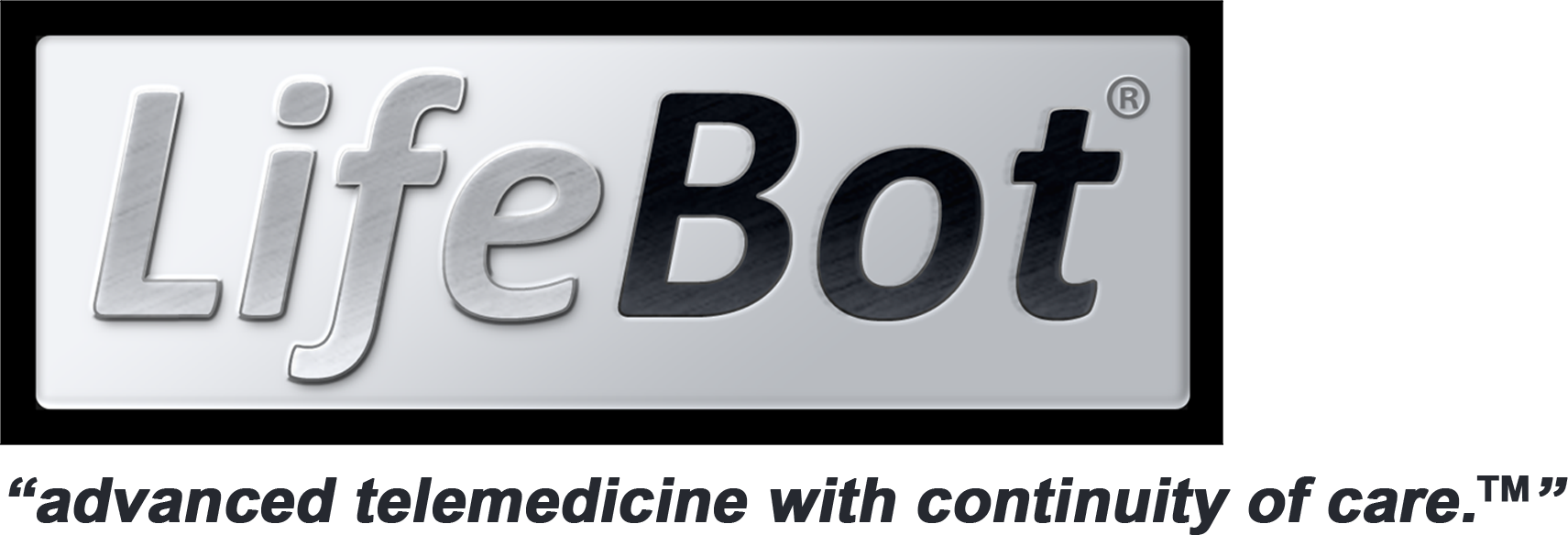
What is Telemedicine?
 Telemedicine (also referred to as “telehealth” or “e-health”) allows health care professionals to evaluate, diagnose and treat patients in remote locations using telecommunications technology. Telemedicine allows patients in remote locations to access medical expertise quickly, efficiently and without travel.
Telemedicine (also referred to as “telehealth” or “e-health”) allows health care professionals to evaluate, diagnose and treat patients in remote locations using telecommunications technology. Telemedicine allows patients in remote locations to access medical expertise quickly, efficiently and without travel.
Telemedicine provides more efficient use of limited expert resources who can “see” patients in multiple locations wherever they are needed without leaving their facility. In developed and developing countries telemedicine offers a reduced cost solution to delivering remote care when and where it is needed without the building and staffing added facilities.
 Telemedicine has become standard medical practice and is in daily use across dozens of countries. Over 10,000 peer review papers have been published over the past 20 years supporting the clinical effectiveness and cost savings of telemedicine. At LifeBot we look forward to building Telemedicine Hubs, where all of this may come together. view more..
Telemedicine has become standard medical practice and is in daily use across dozens of countries. Over 10,000 peer review papers have been published over the past 20 years supporting the clinical effectiveness and cost savings of telemedicine. At LifeBot we look forward to building Telemedicine Hubs, where all of this may come together. view more..
Emergency and Community Paramedicine: The Most Important Role:
 At LifeBot we specialize in Emergency Telemedicine. There is a reason for this. There is no other area where telemedicine may play such an important role as that in saving a life. When those unexpected critical needs occur, “…there is nothing like the calm voice of a doctor or nurse coming across the line”. Not only that, telemedicine allows an emergency specialist to be on the scene in minutes making crucial life-saving decisions in an informed and timely fashion. This is even more important in disaster or mass casualty situations.
At LifeBot we specialize in Emergency Telemedicine. There is a reason for this. There is no other area where telemedicine may play such an important role as that in saving a life. When those unexpected critical needs occur, “…there is nothing like the calm voice of a doctor or nurse coming across the line”. Not only that, telemedicine allows an emergency specialist to be on the scene in minutes making crucial life-saving decisions in an informed and timely fashion. This is even more important in disaster or mass casualty situations.
There is another very important reason we specialize in this area. It is because if we test and prove our solutions in this hostile demanding environment under the most difficult of circumstances, we know they will work exceedingly well in conventional applications. We are put to the test, and we like it that way.
With mobile primary healthcare delivery via Community Paramedicine the “House Call” is returning. No where may our applications do more to provide for an increase quality of care, quality of life, while significantly reducing the overall costs of healthcare for us all. view more
View the LifeBot Newsletter on Telemedicine Reimbursement view newsletter
Telemedicine and Teleheath Links:
- American Telemedicine Association
- International Society for Telemedicine and eHealth
- Canadian Health Informatics
- The Royal Society of Medicine
- National Library of Medicine
- Federal Telemedicine News
- World Congress for mHealth
- HRSA TeleHealth
Emergency EMS Pre-hospital Care Links:
- Emergency Management
- National Association of EMS Physicians
- American College of Emergency Physicians
- Emergency Department Practice Management Association
- International Association of Emergency Managers
- National Association of State EMS Officials
- Committee for Emergency Casualty Care
Conventional Telemedicine Applications
- Rural Health: One of the greatest challenges in rural health is assuring that medical expertise is available where it is needed, when it is needed. This is difficult for remote rural healthcare facilities because they are often unable to attract, afford or retain specialty providers. Telemedicine helps solve these issues by allowing access to specialists regardless of location. The specialist can examine the patient, review vital signs and patient history, provide assessment, diagnosis and treatment. Usually treatment can be delivered locally. This minimizes or eliminates the need for travel for either the patient or the specialist. Telemedicine also helps rural facilities to train and retain clinicians because telemedicine allows on-the-job experience and remote participation in grand rounds.
- Developing Countries: Telemedicine allows rapid deployment of healthcare to a developing population though relatively low cost clinics. Rather than build and staff large numbers of sophisticated facilities, telemedicine allows basic clinics to share the expertise of clinicians and clinical specialist who may be located centrally or decentralized. Expertise is delivered where it is needed and when it is needed. This substantially changes the healthcare delivery strategy of a developing country. It accelerates deployment and costs a fraction of a traditional “bricks and mortar” strategy.
- Prisons Jails and Corrections:Telemedicine allow prison facilities to deliver high quality care without the cost and dangers of inmate transportation or the need for clinical specialist to enter the facility. Telemedicine substantially improves access to care while substantially reducing costs.Telemedicine has proven effective for clinical as well as mental health. Corrections facilities in many states, the US federal prison system as well as prisons outside the US have implemented telemedicine for healthcare delivery to their inmates. They have realized substantial cost savings and found that telemedicine is safe and effective and inmate acceptance is very high.
- Schools and Universities: Telemedicine provides support to the school nurse and allows her or his access to expert medical opinion on when it is needed. The school nurse is an isolated provider yet she has to respond to a variety of needs. In some rural communities, the school nurse may be the only healthcare provider. If she cannot confidently diagnose and treat an issue, the student must be referred many miles away. Schools are also important sites for disaster management. They have lockers, food services, showers, and lost of space. So schools should address this issue in a telemedicine program as well.
- Mobile Healthcare: Telemedicine allows mobile health units access to specialist expertise regardless of where either the mobile health unit or the specialist is located. Mobile health units can serve the community via paramedicine, send challenging cases or second opinion requests to a remote specialist for x-ray reads, diagnosis support, treatment advice, etc. to assure the local patient receives appropriate care.
- Disaster Relief: The benefits for Disaster Relief are similar to rural health and mobile health. Telemedicine allows healthcare delivery capability to move in quickly after a disaster or be on-site if proper equipment is deployed before any event. This allows the on-sight providers rapid access to advanced expertise and capabilities for triage and care electronically when and where it is most needed.
- Shipping and Transportation: Whether it includes crews of cargo ships at sea, guest and crews of cruise ships, passengers and crews in the air or owners, guests and crews on private yachts. Telemedicine allows access to advance healthcare expertise, triage advise as well as diagnosis and treatment regardless of where the ship or plane. Telemedicine avoids the high cost evacuations and unscheduled diversions.
- Industrial Health: Industrial sites such as mines, drilling platforms or industrial campuses depend on the health of their employees to operate. They must respond to an unpredictable set of health needs to support sometimes hundreds of employees. Telemedicine avoids the high cost evacuations and assures that the worker receives appropriate treatment and is available to support operations as soon as possible.
States and Telemedicine Reimbursement:
List of Private Payers by State:For more information on state telemedicine policies, please visit the ATA State Policy Center. States Mandating Telemedicine Private Reimbursement:These states have passed legislation mandating private payer reimbursement for telemedicine:
Private Payers by State:Alaska:
Arizona:
|
Georgia:
Kansas:
Maine:
Michigan:
Minnesota:
|
Missouri:
North Carolina:
North Dakota:
Nebraska:
New York
South Dakota:
Tennessee:
Utah:
Virginia:
Washington:
Wisconsin:
West Virginia:
|